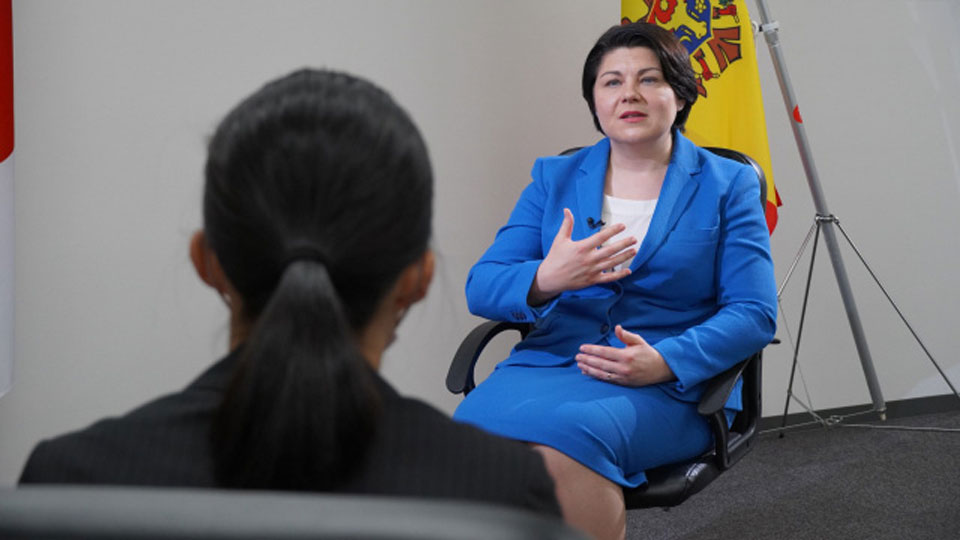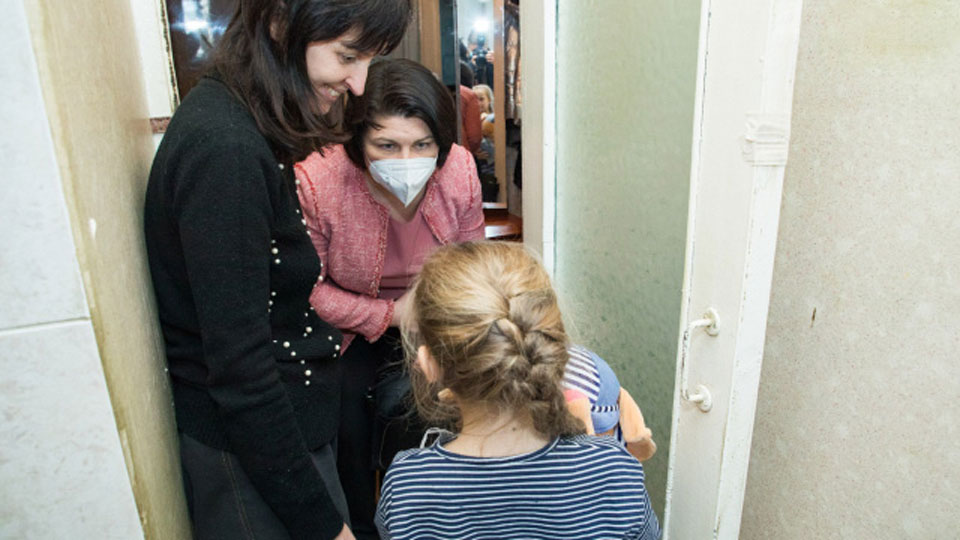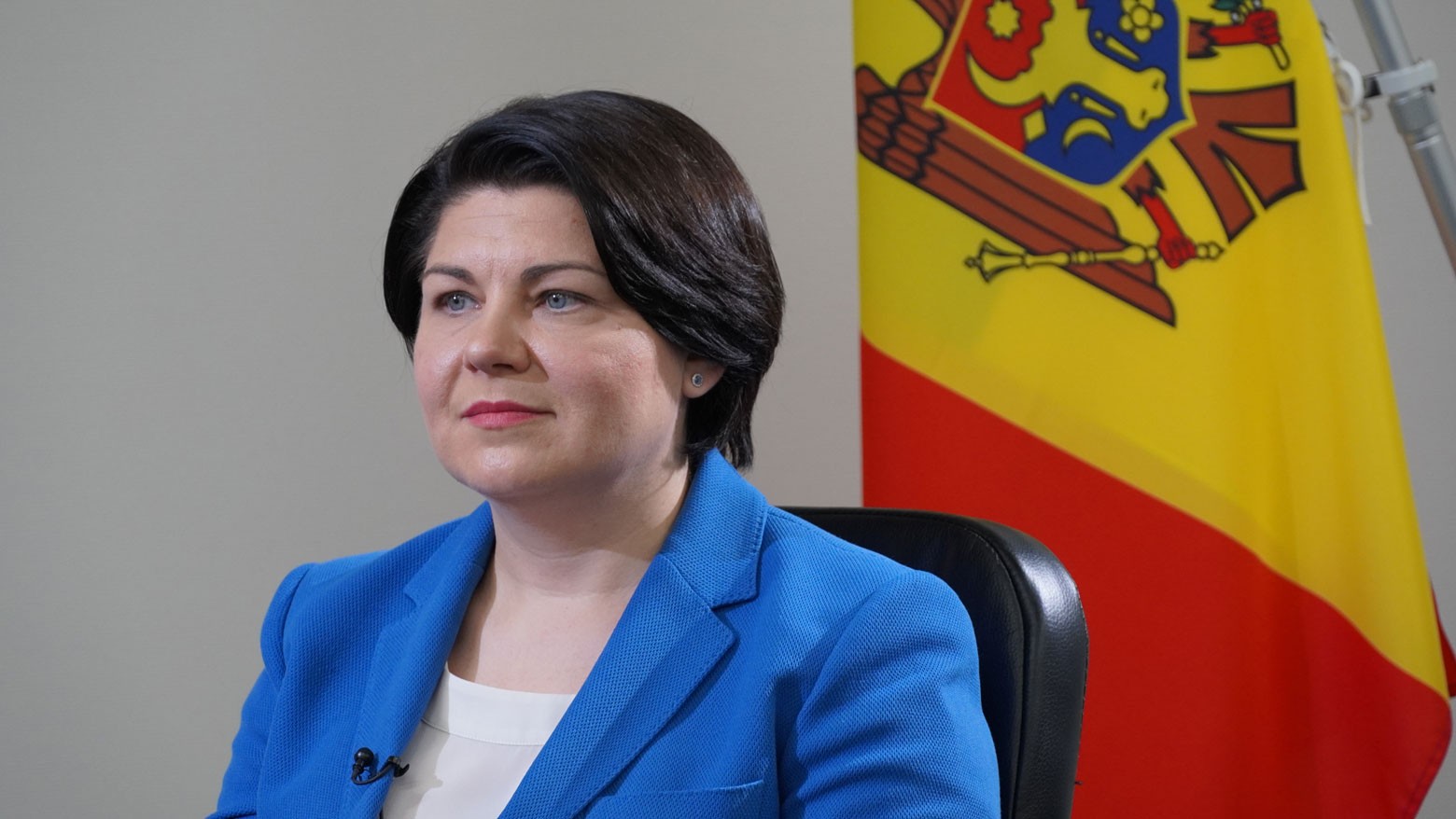
Gavrilita took office in August last year. By the following February, the people of her country were accepting tens of thousands of Ukrainians displaced by conflict. She's approached the situation from the viewpoint of both a leader and a parent.
"As the prime minister and as the mother of an 8-year-old son, I was especially moved to hear about the children who lived in basements while listening to the bombing," she said recently from the Moldovan embassy in Tokyo.
"And there are mothers who were separated from their husbands ... I was moved by the reality of seeing people whose lives have been ruined."
'Extraordinary' Ukrainian teachers
Gavrilita recalls visiting a displaced Ukrainian family. "The mother told me, 'The only things we need right now are jobs to make a living, and the internet for my children to continue studying.'"
Many Ukrainian teachers are apparently working online, connecting classmates regardless of where they may be now. "They continue to give lessons to help the children keep their presence of mind. I felt this was extraordinary," says Gavrilita.

Solidarity from the outset
At one point, there were nearly 300,000 people from Ukraine in Moldova. That's more than a tenth of the population, and unquestionably a huge burden. Still, Gavrilita insists we should look at the bigger picture.
"The people of Moldova are suffering from the economic effects of the war. It is not about the refugees. The impact of rising energy and food prices is bigger," she says.
And she's proud of the way her country has come together to help a neighbor in need.
"Moldova has been accepting Ukrainians with a sense of solidarity. Some people have welcomed them to their homes and are living under the same roof. From the outset, thousands of volunteers gathered. Some reacted even faster than the government."
Japanese donations a big help
The Moldovan government opened a bank account soon after the invasion to accept humanitarian donations from around the world. "We receive a lot from governments and organizations," says Gavrilita.
"But donations from the general public were largest in Japan. On behalf of the people of my country, I would like to express my gratitude for your kindness."
A note from the reporter:
The Moldovan Embassy offered me this interview with Prime Minister Gavrilita after seeing a couple of reports I produced earlier in the year. One was about two Japanese men who set up a website to raise money for Moldova, which has taken in hundreds of thousands of Ukrainian refugees despite being one of the poorest countries in Europe. The other was an interview with the Moldovan Ambassador to Japan, who explained that his country's desire to help stems from its own experience of conflict in the 1990s, when large numbers of Moldovan refugees took shelter in neighboring countries.

